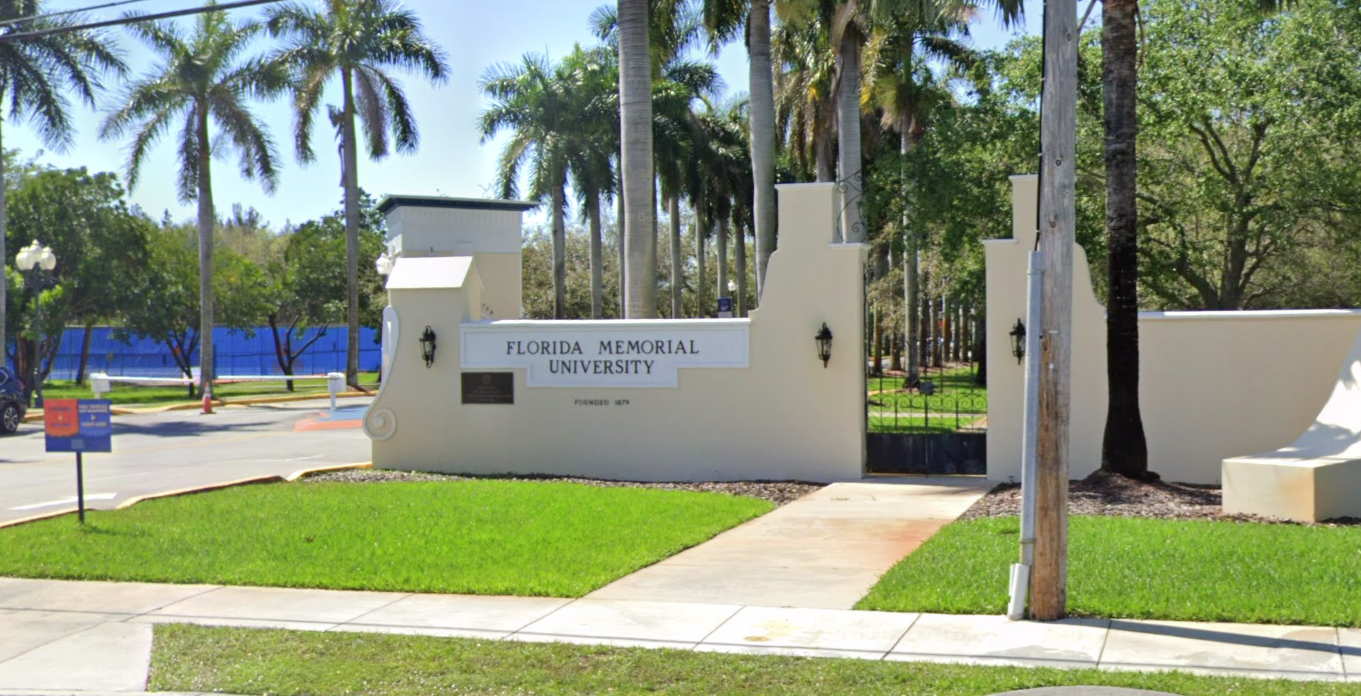
Screenshot via Google Maps

Audio By Carbonatix
When Florida Memorial University (FMU) was placed on yearlong probation last summer by its accrediting body – a move precipitated by a multitude of financial issues – some faculty, alumni, and students feared it was the death knell for the 142-year-old institution, South Florida’s only Historically Black College and University (HBCU).
In November, FMU announced a number of measures to stabilize its finances, such as reducing employee salaries, discontinuing 16 degree programs, and eliminating 15 faculty positions (including at least four tenured professors).
Though drastic, the strategy appears to have worked: As of Thursday, June 16, FMU’s accreditation agency, the Southern Association of Colleges and Schools Commission on Colleges (SACSCOC), has removed the university from probation, allowing FMU to maintain its accreditation.
“It’s a burden lifted. It’s truly a reason to celebrate,” FMU spokesperson Sharee Gilbert writes in an email to New Times. “As you know, in order to reach this moment, it took a lot of hard work. We are most appreciative to our Board of Trustees, faculty, staff, students, and stakeholders for their sacrifices and support during this difficult process.”
In July 2021, SACSOC placed FMU on yearlong probation, threatening to revoke its accreditation if the school did not adequately address its lack of “financial responsibility” and failure to comply with financial-aid program duties. The commission imposed a deadline of June 2022.
In April, Gilbert says, the SACSCOC review committee visited FMU’s campus and concluded that FMU “met and fully satisfied all standards.” On June 14, a task force from the school traveled to Tampa and met with SACSCOC’s board of trustees, a group of roughly 77 administrators and academics from various Southern colleges and universities. Following the meeting, the board voted to lift FMU’s probation.
“This is an opportunity for growth,” Gilbert says. “Now we can continue on as an institution. FMU is financially stable, academically sound, and continues ascending to excellence.”
SACSCOC accredits colleges across 11 southern states, including 72 HBCUs, which as a group have long been underfunded compared to larger and predominately white public institutions. A 2020 study found that from 2012 to 2017, SACSCOC was more than three times as likely to take adverse actions against HBCUs than against non-HBCUs. Over the past two decades, six HBCUs have closed, while several others remain open despite losing their accreditation.
Had FMU been stripped of its accreditation, diplomas of students currently enrolled in the school could become worthless and the university might have lost access to federal funding and financial-aid grants for students. (Many HBCU students rely on those grants, commonly known as Pell Grants, to pay for tuition and books.)
More broadly, losing South Florida’s only HBCU would likely be devastating for the region’s Black community. HBCUs have long played a crucial role in molding Black leaders and professionals. According to the United Negro College Fund, while HBCUs make up only 3 percent of the nation’s colleges and universities, they enroll 10 percent of all African-American students and produce nearly 20 percent of all African-American college graduates.
In a memo shared with the university community on Thursday, university president Jaffus Hardrick wrote that FMU is one of the “largest employers in the area” and when the university succeeds, the community succeeds along with it.
“Today’s decision affirms the significance and impact of our university in continuing to provide access to a quality education for many deserving students,” Hardrick wrote.